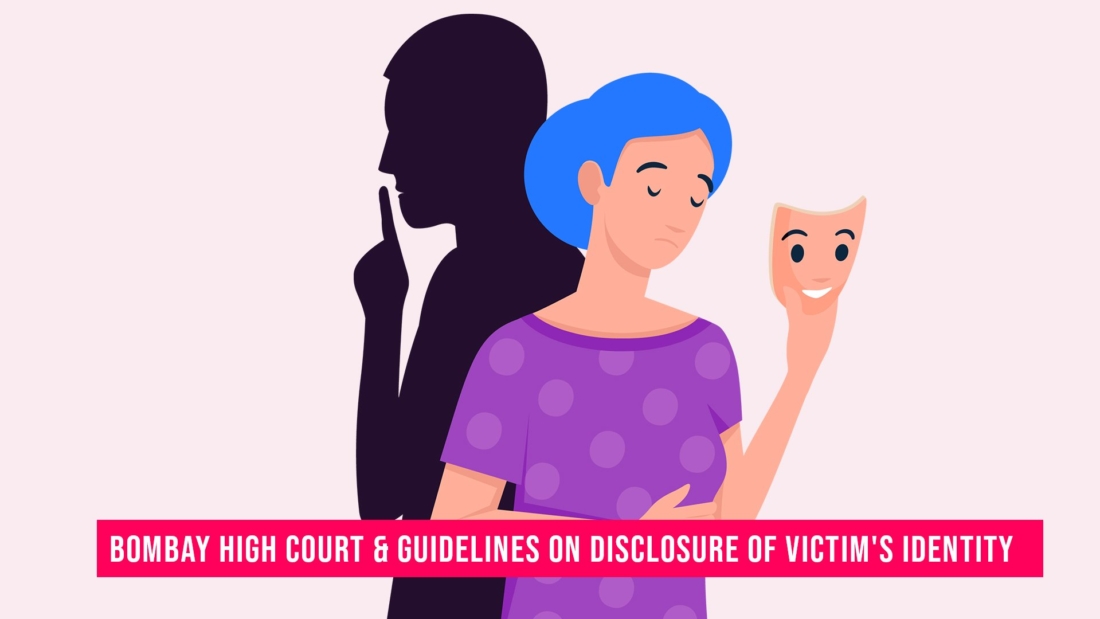The Aurangabad Bench of the Bombay High Court on 30 Jan, 2021 issued additional guidelines to avoid & prevent disclosure of rape victim’s identity even indirectly to restrain print/electronic media as well general public, using social media, from publishing information related to Rape victim that could “directly or indirectly” disclose her identity.
A plea was raised by Mrs. Sangita (the mother of a rape victim) in Sangita v. The State of Maharashtra to seek direction to the Print and Electronic Media that the name or identity of the rape victim should not be disclosed. The Petitioners had stated to the Bench of Justice T. V. Nalawade & Justice M. G. Sewlikar that despite having the provisions under Section 228-A of the Indian Penal Code and directions issued by the Supreme Court in the case of Nipun Saxena & Anr. Vs. Union of India & Ors. [(2019) 2 SCC 703], the Print and Electronic Media were publishing the details of the crime (involving her daughter) in such a manner that the identity of the victim was invariably disclosed.
The Court acknowledged the fact that the victim suffers physical and mental trauma and publication of the news thereby disclosing the identity of the victim, causes severe mental agony to the victim and she has to undergo these agonies for no fault of hers. The Court further noted that Section 228-A of the Indian Penal Code mandates that the identity of the victim in offences under Sections 376, 376-A, 376-B, 376-C, 376-D or 376-E Of Indian Penal Code should not be disclosed.
The Court directed that the print media, the electronic media, the people using social media while giving information/circulating information relating to offences covered under the previously stated sections of IPC and offences under POCSO to not disclose the following details-
- The names of the parents or relatives of the victim.
- Relation of the accused with the victim.
- Residential/occupational/work address of the accused and the victim and the village at which the victim and/ or accused live.
- Occupation of the parents or other relations of the victim and place of work of the victim and accused /their parents or any other relative in such a manner that the victim will be identified.
- If the victim is a student, name of the school or college or any other educational institution or private coaching class or classes which the victim has joined for pursuing her hobbies such as music, drawing, dance, stitching, cooking etc.
- Details of family background of the victim.
The Court also stated that that while framing charge or recording evidence or forwarding remand report, mentioning name of the victim should be avoided rather he/she should be referred to as ‘X’ or any other alphabet as the Court deems fit and proper. If the witness is herself or himself a victim then their details should be sealed and treated the same way as framing charges. The Registrar (Judicial) was directed to bring these directions to the notice of the authorities concerned.
Lastly, the Court expressed its hope the electronic media and/or the relatives of the victim will take necessary precautions to avoid and prevent disclosure of the identity of the victim and on that note the PIL was disposed of.
– Adv. Shivangi Prasad – Corporate Lawyer, External Member & Trainer, Head – Legal & Compliance, Partner Child Safety at Work & Vaishali Jain, Paralegal – Child Safety at Work
 Cart is empty
Cart is empty 

